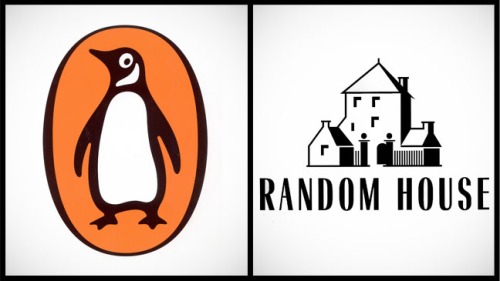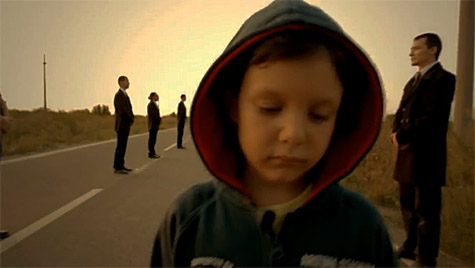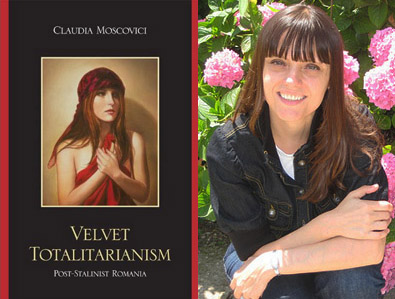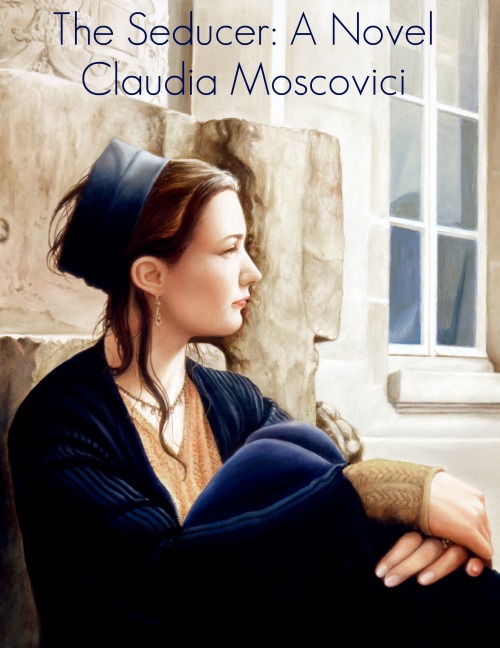
Music video book trailers
 15 min
15 min
Music video book trailers

Both publishers and authors are becoming increasingly concerned with the question of how to promote books effectively, capture the interest of readers and generate sales. Given the number of books out there, without an outstanding publicity campaign, each given book risks passing unnoticed. Currently, the competition for readers is tremendous. An astronomical number of books are published each year. The United Nations Educational, Scientific and Cultural Organization (UNESCO) cites that roughly 2,200,000 books are published annually. Out of curiosity, I looked up the two countries I write about most which, not coincidentally, are also those where I’ve lived: the U.S. and Romania. In 2010, 328,259 were published in the U.S. and in 2008 14,984 books were published in Romania. Given this large number of books published in the U.S. alone, it’s difficult to believe how difficult and competitive the process of publishing can be (as I explain in an earlier article on the subject):
in English:
And yet publishing your manuscript is only the beginning of the gargantuan task of rising to the surface in an ocean of books. In fact, the UNESCO study probably doesn’t even count the number of self-published books via Amazon Kindle, Lulu and many other self-publishing options. On the one hand, the mass media makes sharing our cultural products easier in some ways, by facilitating access to an audience. For instance, anyone can self-publish and promote a novel nowadays, through blogs, twitter, youtube and other popular venues on the internet. But this apparent democratization of culture also makes it a lot tougher to stand out from the crowd. Each cultural product–be it a novel, a collection of poems, a song, a film or a painting–competes with tens of millions of others. It’s hard to find or discern anymore what we value and what we don’t in this tidal wave of information that assails us from all directions on a daily basis.
To draw another analogy, it’s as if we heard talented classical musicians playing their instruments at the same time as others howl, scream, talk and yell in various languages. Or, if you prefer to avoid making any value judgments, as if we heard them playing at the same time as other talented musicians practice other songs. Either way you look at it, what reaches our ears will sound like a maddening cacophony, to the point that we can no longer discern the music we prefer from the surrounding noise we’d like to ignore. In a world of information (and publication) overload, effective publicity and keeping up with the rapid changes in the mass media can make the difference between success and failure.
When I taught literature and aesthetics at the University of Michigan, I also helped organize a few panels in the Ann Arbor Book Festival for several years. In this function, I witnessed up close and personal the struggles of one of the biggest book stores internationally, the Borders Group Inc., which was one of our main sponsors for the book festival. As is well-known, Borders faltered in the face of growing competition from Amazon.com as well as its direct competitor, Barnes & Noble. After downsizing for a few years, the company eventually declared bankruptcy in February 2011. Barnes & Noble swallowed its former rival, taking over Borders’ trademarks and customers.
A similar phenomenon can be witnessed in the world of publishing. Two decades ago, when I first began creative writing, there were dozens of small presses in the U.S. Now there are hardly any left, both because they can’t compete with the major publishing houses and because self-publishing has taken a big bite out of their sales. Many of those that survive have been assimilated into larger publishing houses. And they are not alone. During the past decade, even the mainstream publishers often group together into larger conglomerates. For instance, one of my favorite publishers of literary fiction, Farrar Straus & Giroux, which has published internationally renowned authors such as Isaac Bashevis Singer, Tom Wolfe, Jonathan Franzen and Jeffrey Eugenides, forms a conglomerate with the MacMillan Publishing group. On July 1st 2013, two of the biggest publishing houses, Penguin and Random House, joined forces to form Penguin Random House. This megapublisher is predicted to account for a quarter of book sales in the U.S., as Julie Bosmanexplains in her July 1, 2013 article on the subject in The New York Times:
This merger may be partly in response to the fact that starting in 2009, Amazon.com, the biggest online book seller in the U.S., launched several (selective, as opposed to self-publishing) imprints of foreign and genre fiction. These include AmazonEncore (out-of-pront or self-published books that sell well), AmazonCrossing (books in translation), Montlake Romance and Thomas & Mercer (mystery novels). In May 2011, Larry Kirshbaum, the former CEO of Time Warner Book Group, took over Amazon Publishingto create a new general-interest imprint.
To summarize the increasingly competitive and volatile environment of the publishing industry: many authors are choosing self-publishing rather than wallowing indefinitely in the “slush piles” of highly selective and largely inaccessible literary agents; small presses have been swallowed by bigger ones (or gone out of business); large book sellers have faced bankruptcy and even mainstream publishers have had to merge to continue to thrive in the industry. But even these changes may not be enough. More publishers will sink and more publicity is needed–for authors, book sellers and publishers alike–to survive in such a highly competitive environment, where mainstream success is almost as statistically rare as winning the lottery.
Effective book publicity has become a necessity. Unfortunately, even for authors publishing with the big mainstream publishers, a decent publicity budget is not easy to come by. Ebooks continue to grow in popularity, which may be great news for readers but not necessarily for writers and publishers. Even taking into account the fact they largely eliminate the distribution cost and entirely eliminate the shipping and handling cost, ebooks generate smaller revenues than print books, which means, overall, fewer profits. This, in turn, means a general decrease in publicity budgets. Also, please keep in mind that publicity budgets aren’t equally distributed among authors. The major publishing houses allocate most of their annual publicity budget on a handful of books they predict will sell that year, most of which are written by celebrities (like Paris Hilton or George Bush) or authors who already have proven sales. This leaves the vast majority of published authors to fend for themselves and generate their own publicity: through blogs, social networks, twitter, contacting libraries and bookstores, however they can.
This discussion brings us full-circle to the initial problem I broached in this article: the difficulty of standing out in this deluge of mass media communication, where pretty much every author does his or her best to be heard and read. So how can you stand out if you aren’t one of the lucky few who get a major publisher’s annual publicity budget? I’d like to propose a new method–music video book trailers–that is innovative, cutting-edge and appeals to potential readers’ senses and imagination, to awaken their interest books.
I came upon the idea of music video book trailers partly through good fortune (of working with a cutting-edge major publishing house in my native country, Romania, Curtea Veche Publishing)–and partly because I was actively seeking opportunities of getting involved in such a project. Ever since I’ve been a teenager I loved pop music and jazz and was intrigued by the power of music videos to capture viewers’ attention not only through catchy music, but also through spectacular filmic scenes that can rival the best movie trailers.
Once I found out from my publisher that my first novel,Velvet Totalitarianism, would be launched in Romanian translation (under the title Intre Doua Lumi) in September of 2011, I began exploring the possibility of collaborating with talented Romanian composers and musicians for a music video/book trailer of my novel. Via LinkedIn, I met the Romanian singer, composer, director and producer Andy “Soundland” Platon, who ended up doing a wonderful music video based on my novel, called Velvet Love:
https://www.youtube.com/watch?v=KURICuT8TcA
Andy Platon is a Romanian pop music prodigy. I say “pop music” only because that’s what he excells at best. But Andy has enormous range both in terms of the scope of his talents–as a composer, music video director and producer andsinger–and in the versatility of his musical abilities, from classical music to pop music and everything in between. Andy made his debut while still only a teenager in 2009 with the song Lost Without You, which became a finalist in the competition Battle of Songs. This show was featured not only in Romania, but also in France, Russia and Turkey. Lost Without You was also nominated for the Shockwave NME Music Awards 2010. More recently, he’s known for his collaborations with Troy Lynch – The BeatBoyz (T.I., Gucci Mane, 112), Loredana Groza and Marius Nedelcu featuring Alexandra Ungureanu, Irina Popa, Xonia, Anthony Icuagu (ex. Insane), Ianna Novac (ex. ASIA, Ladies). Recently, he has established his own production company, called Fonogram Studios and is collaborating with internationally renowned musicians, such as Kris Searle.
Andy Platon’s new single and music video, Velvet Love, performed by the talented singer Marcel Lovin, captures with feeling and sensibility some of the most poignant scenes of my novel Velvet Totalitarianism, including the complex dynamics between the main characters, Radu and Ioana, as they struggle with the tension between their love for each other and harassment by the Secret Police. As an art critic I found the video to be very artistic–almost photographic in feel–showing clearly Andy’s eye for capturing each scene in a single image, as well as the talent of his co-producer and Director of Photography, Anthony Icuagu. The main actors–Ioana Picos as Ioana and Mihai Marin as Radu–did a wonderful job playing the romantic couple in the novel, whose risky love for each other may be saved by their parental love for their son, Lucian, played by Alia Anastasiei.
In general, music video book trailers have the following advantages for generating publicity for both authors and publishers:
1. They appeal to most of our senses. At their best, they’re musically catchy, visually stimulating and dramatic enough to stage a narrative that leaves viewers eager to find out more about your book.
2. They’re international. If posted on youtube, vimeo and other public venues, music video book trailers can quickly reach an international audience. If you wish to target only readers who speak a certain language, such as Romanian, French or Russian, then you can do them in that language.
3. Music video book trailers allow for a flexible budget. They can be as expensive as you can afford or as inexpensive as you desire. Before meeting the music composer and producer Andy Platon, I did my own music video book trailers and posted them on youtube. Though they certainly lacked professional filming equipment and original music, they still reached thousands of readers and were effective advertising tools. I’m including below my music video book trailer for my second novel, The Seducer:
4. They involve fruitful collaborations among the arts–music, film, acting and literature–so they’re by nature artistically complex and interesting.
5. They are amenable to various sources of funding, such as donors, investors and crowd funding, which do not depend strictly on the publicity budget your publisher is willing to allocate for your book. In fact, crowd funding has become an increasingly popular and effective way of raising revenues for artistic projects. For information about some of the most promising crowd funding options, I’m including below Chance Barnett‘s article on the subject, published in Forbes Magazine:









 English
English
 Français
Français
 Deutsch
Deutsch
 Italiano
Italiano
 Español
Español



 Contribuisci
Contribuisci






















































 Puoi sostenere i tuoi scrittori preferiti
Puoi sostenere i tuoi scrittori preferiti





